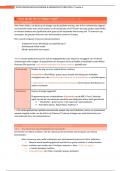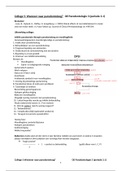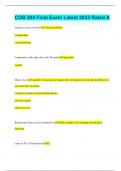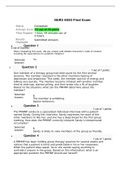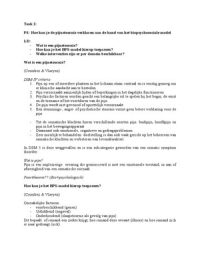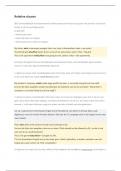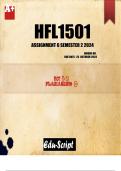Exam (elaborations)
HED4809 Assignment 4 2024 | Due 23 August 2024
- Module
- Institution
Conflict theorists believe the driving force in complex societies is the unending struggle between different groups to hold power and status. Discuss this statement by referring to the school as important instrument in this struggle. Structure your essay as follows: 1. Introduction to the essa...
[Show more]




